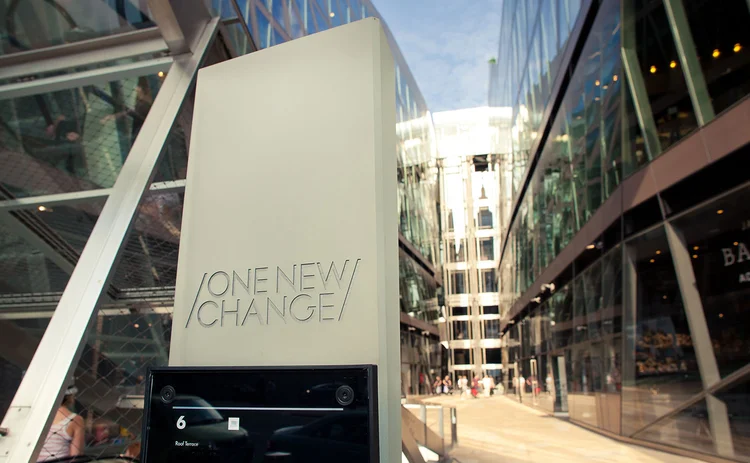Ion-Broadway Merger Approved with Strings Attached
Broadway chief executive Tyler Moeller leads a consortium to buy the divested fixed-income business.

The UK competition regulator has approved the merger of Ion Investment Group and Broadway Technology on the proviso that Ion sells Broadway’s fixed-income business, including the underlying software and brand, to a consortium led by Broadway chief executive Tyler Moeller.
A source close to the Competition and Markets Authority (CMA) confirms that, once it deems competition to be restored, the divested business is “set on its way and the regulator does not have a role after that to regulate the market.”
The Ion-Broadway deal sparked industry concern when it was announced in February. Market participants argued it would leave banks with few viable alternatives in fixed-income technology.
The CMA had said it was concerned the deal could leave customers facing a “significantly reduced choice of supplier with the potential for higher prices or more onerous terms and conditions on their services.”
A partner at a UK law firm says that in general terms it is not unusual for the CMA to permit a transaction to go ahead provided certain parts of the business are not acquired, adding: “Essentially this is what is being achieved here.”
Both Ion and Broadway provide connections to trading venues as well as software such as user interfaces and pricing and risk management tools. Ion already has an estimated 80% share of the sell-side market for fixed-income trading technology. While Broadway has some fixed-income business, it has a bigger slice of foreign-exchange trading.
In July, the CMA said Ion’s only significant rivals were Broadway and Bloomberg, though AxeTrading, SmartTrade and TransFicc provide a more limited constraint.
In the past, Ion has been criticized for its approach to negotiating and enforcing contracts and for the way it prices and bundles its technology. Last year, some European and UK banks started assessing the viability of a DIY alternative to Ion.
An executive at a rival vendor says the deal is still a good one for Ion, explaining: “The interesting Broadway asset is FX. Broadway FX, which is the merger of the Barracuda order management system and Broadway connectivity, will allow Ion to provide to the FICC market a full offering for fixed income and FX.”
The FX technology business is, in general, significantly less lucrative than the fixed income business
Consultant to the FX industry
However, a consultant to the FX industry cautions: “It should also be noted that Ion already has a fairly large number of FX assets and the FX technology business is, in general, significantly less lucrative than the fixed income business.”
In a report published on August 7, the CMA revealed Ion’s proposed remedy. The undertaking that the CMA reached with Ion on November 9 allows Ion to keep only Broadway’s FX business and find a buyer for the firm’s fixed-income franchise.
The CMA says the remedy will address its concerns and restore competition in the supply of fixed-income electronic trading systems to the conditions prior to the merger. The merger will not therefore be referred for an in-depth phase two investigation.
The agreement stipulates that Ion must sell Broadway “as a going concern at no minimum price” to a purchaser approved by the CMA that is independent of and unconnected to Ion. Ion must not offer any reverse premium or similar inducement to a purchaser, or accept any actual or contingent liability towards a purchaser.
The agreement includes a warranty that the proposed purchaser has the financial resources, expertise, incentive and intention to viably maintain and operate the divested business in competition with Ion and other competitors in the fixed-income space.
The divestment must be completed within 50 working days from the date of Ion’s agreement with the CMA. Ion must use “all reasonable endeavours [sic]” to ensure the transfer of key staff to the divested Broadway business, and ensure there is no integration of the information technology or client and supplier lists of the divested Broadway and Ion businesses.
The divested Broadway will take with it the so-called TOC – Broadway’s core platform which forms part of its software bus, and which is required to run the current fixed-income business. Ion needs access to the TOC to run the FX business it is keeping, so the transition arrangements allow the divested Broadway business to grant a three-year licence to Ion for its use exclusively in respect of the FX business. Ion shall not, during the term of the licence, offer any new licences of its own non-FX modules to customers on the TOC.
Ion must also actively keep the CMA informed of any material developments, such as substantial customer volumes lost by the divested business, and for a period of 10 years Ion must not hold an interest in the divested Broadway business.
Ion and Broadway did not respond to a request for comment by press time.
Only users who have a paid subscription or are part of a corporate subscription are able to print or copy content.
To access these options, along with all other subscription benefits, please contact info@waterstechnology.com or view our subscription options here: http://subscriptions.waterstechnology.com/subscribe
You are currently unable to print this content. Please contact info@waterstechnology.com to find out more.
You are currently unable to copy this content. Please contact info@waterstechnology.com to find out more.
Copyright Infopro Digital Limited. All rights reserved.
As outlined in our terms and conditions, https://www.infopro-digital.com/terms-and-conditions/subscriptions/ (point 2.4), printing is limited to a single copy.
If you would like to purchase additional rights please email info@waterstechnology.com
Copyright Infopro Digital Limited. All rights reserved.
You may share this content using our article tools. As outlined in our terms and conditions, https://www.infopro-digital.com/terms-and-conditions/subscriptions/ (clause 2.4), an Authorised User may only make one copy of the materials for their own personal use. You must also comply with the restrictions in clause 2.5.
If you would like to purchase additional rights please email info@waterstechnology.com
More on Emerging Technologies
This Week: Startup Skyfire launches payment network for AI agents; State Street; SteelEye and more
A summary of the latest financial technology news.
Waters Wavelength Podcast: Standard Chartered’s Brian O’Neill
Brian O’Neill from Standard Chartered joins the podcast to discuss cloud strategy, costs, and resiliency.
SS&C builds data mesh to unite acquired platforms
The vendor is using GenAI and APIs as part of the ongoing project.
Chevron’s absence leaves questions for elusive AI regulation in US
The US Supreme Court’s decision to overturn the Chevron deference presents unique considerations for potential AI rules.
Reading the bones: Citi, BNY, Morgan Stanley invest in AI, alt data, & private markets
Investment arms at large US banks are taken with emerging technologies such as generative AI, alternative and unstructured data, and private markets as they look to partner with, acquire, and invest in leading startups.
Startup helps buy-side firms retain ‘control’ over analytics
ExeQution Analytics provides a structured and flexible analytics framework based on the q programming language that can be integrated with kdb+ platforms.
The IMD Wrap: With Bloomberg’s headset app, you’ll never look at data the same way again
Max recently wrote about new developments being added to Bloomberg Pro for Vision. Today he gives a more personal perspective on the new technology.
LSEG unveils Workspace Teams, other products of Microsoft deal
The exchange revealed new developments in the ongoing Workspace/Teams collaboration as it works with Big Tech to improve trader workflows.







